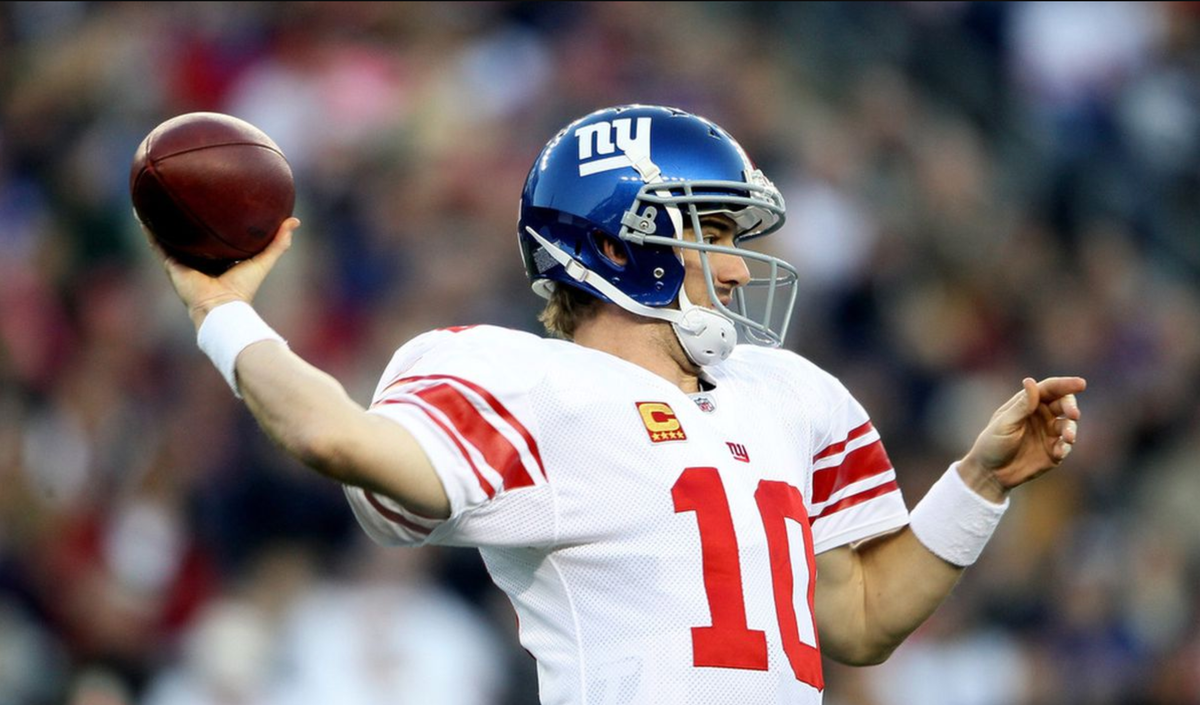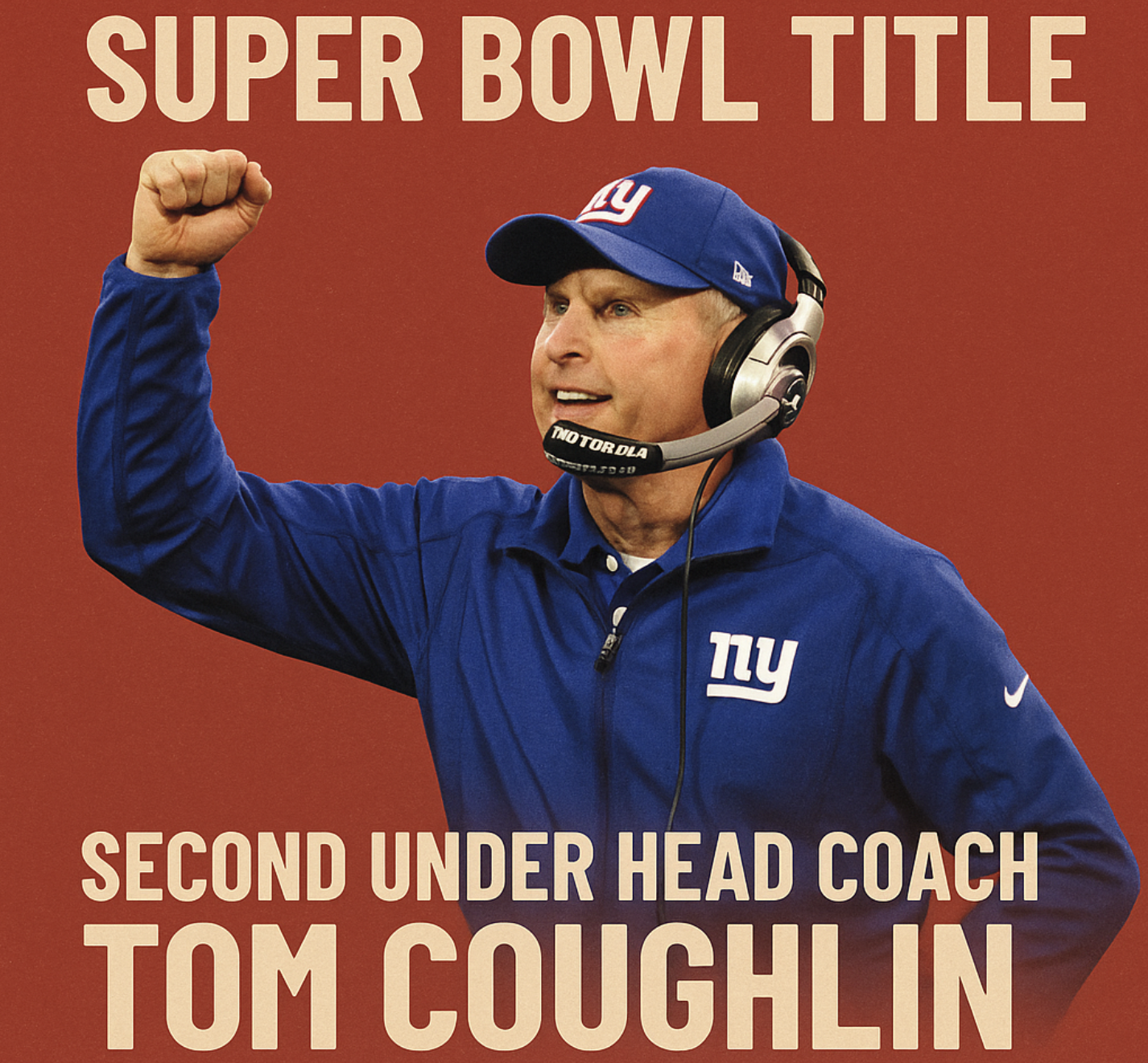Super Bowl XLVI: Eli Manning’s Encore and the Giants’ Gritty Glory

When Super Bowl XLVI kicked off on February 5, 2012, at Lucas Oil Stadium in Indianapolis, it was more than just another championship bout—it was a rematch dripping with storyline. The New York Giants and the New England Patriots had last met on the grand stage four years prior, in a game that ended the Patriots’ perfect season. Now, with both squads seasoned and battle-tested, the question was whether lightning could strike twice for Big Blue—or whether Bill Belichick and Tom Brady would extract long-awaited revenge.
What transpired was one of the most tightly contested, emotionally charged Super Bowls in modern memory. In a game decided in the final moments, the New York Giants again toppled the heavily favored Patriots, 21–17, thanks to clutch play, a few improbable bounces, and the steady hand of a quarterback who was once doubted but now undeniably elite.
The Game at a Glance
Final Score:
New York Giants 21
New England Patriots 17
It was a game of momentum shifts, brilliant adjustments, and historic moments. Though the Patriots led late in the fourth quarter, the Giants pieced together a surgical drive—highlighted by a miraculous 38-yard catch by Mario Manningham—to capture the lead for good with under a minute remaining. It marked Eli Manning’s second Super Bowl MVP in four years and cemented his legacy in NFL lore.
“In the annals of Super Bowl quarterbacking, Eli Manning’s performance in XLVI was every bit as poised and precise as his 2008 heroics—if not more so,” said Richard Halberstam, Senior Historian at the Super Bowl Historical Society. “The Manningham throw is one of the greatest passes in postseason history.”
First Half: Defense Sets the Tone
The game opened with a defensive slugfest. The Giants drew first blood with a safety, earned when Patriots quarterback Tom Brady was flagged for intentional grounding in his own end zone after feeling pressure from Justin Tuck and Jason Pierre-Paul. It was an ominous beginning for a New England team known for fast starts.
The Giants followed up with a 78-yard touchdown drive, capped by a 2-yard pass from Manning to Victor Cruz. With a 9–0 lead, New York had controlled possession, tempo, and field position. However, Brady responded like the Hall of Famer he is, orchestrating two methodical scoring drives. A 10-play, 96-yard march just before halftime, ending in a touchdown to Danny Woodhead, gave the Patriots a 10–9 halftime edge.
“When Brady hit Woodhead to close the half, it looked like New England had finally found its rhythm,” noted Loretta Winston, an SBHS archivist. “But the Giants’ defensive front kept him uncomfortable all night long.”
Second Half: Strategic Chess Match
The Patriots extended their lead early in the third quarter with another Brady-to-tight end touchdown, this time to Aaron Hernandez. At 17–9, it felt like the Patriots might start to pull away. But the Giants’ defense, much like in Super Bowl XLII, refused to fold.
Manning continued to thrive in the face of pressure, picking apart the Patriots’ secondary with a series of precise throws. His chemistry with Hakeem Nicks, who finished with 10 catches for 109 yards, was evident throughout.
A Lawrence Tynes field goal and another defensive stop set the stage for a dramatic final drive. Down 17–15 with 3:46 remaining, Manning had to lead a long march to glory—something he had done before on this very stage.
The Manningham Moment
The turning point came on the first play of the drive. Manning, standing tall in the pocket, launched a deep sideline pass to Manningham, who secured it while keeping both feet in bounds and shielding the ball from two defenders. The 38-yard gain flipped the field and flipped the script.
From there, Ahmad Bradshaw added tough yards, including the awkward but crucial go-ahead touchdown, where he accidentally fell into the end zone with 57 seconds remaining. The Patriots allowed the score to preserve clock, hoping Brady could engineer a final miracle.
The Final Stand
Brady came out slinging, hitting Deion Branch and Aaron Hernandez to push into Giants territory. But with mere seconds on the clock, a Hail Mary attempt into the end zone fell incomplete—barely beyond the reach of a leaping Rob Gronkowski.
Just like in 2008, the Giants had stunned the Patriots in the final moments.
MVP: Eli Manning
Eli Manning finished the game 30 of 40 for 296 yards and one touchdown, earning Super Bowl MVP honors for the second time. He became just the fifth quarterback in NFL history to win multiple Super Bowl MVPs, joining the likes of Tom Brady, Joe Montana, and Terry Bradshaw.
His clutch performance down the stretch—and his orchestration of the game-winning drive—quieted any lingering critics. No longer was he Peyton’s younger brother or merely a product of circumstance. He was a certified postseason legend.
Key Players
- Mario Manningham: His sideline catch—acrobatic, precise, and under duress—became the defining highlight of Super Bowl XLVI.
- Justin Tuck: As in Super Bowl XLII, Tuck harassed Brady throughout, registering key pressures and leading a pass rush that sacked Brady twice and forced the safety.
- Hakeem Nicks: Manning’s favorite target all postseason, Nicks consistently moved the chains with physicality and hands of glue.
- Tom Brady: The Patriots’ legend had moments of brilliance, finishing 27/41 for 276 yards and 2 touchdowns, but was hounded by the Giants’ rush and missed key throws late.
Legacy and Aftermath
The win gave the Giants their fourth Super Bowl title and second under head coach Tom Coughlin. For Manning, it elevated him into an elite tier of quarterbacks who performed best when it mattered most.

The Patriots, meanwhile, were left to wrestle with another heartbreaking loss. It would take years before Brady and Belichick would hoist another Lombardi Trophy, though they ultimately rebounded with victories in Super Bowls XLIX, LI, and LIII.
For many fans, Super Bowl XLVI remains one of the most dramatic finales in recent memory—a chess match that unfolded with championship tension and unforgettable heroics.
“You don’t get many games where every play feels meaningful, but this one did,” said Halberstam. “From the safety to Manningham to the Hail Mary, Super Bowl XLVI was classic football theatre.”
Cultural Impact
Beyond the on-field action, Super Bowl XLVI was watched by over 111 million viewers in the U.S., making it the most-watched television program in American history at the time. Madonna headlined the halftime show with guest performances by Nicki Minaj and M.I.A., the latter of whom made headlines for an unscripted gesture.
But it was Manning, not Madonna, who truly stole the show.
Conclusion
In a sport built on inches, Super Bowl XLVI reminded fans that greatness is measured not only in stats but in moments. Eli Manning and the Giants seized those moments with unshakable composure, gritty defense, and a belief that they could once again topple a juggernaut.
The echoes of that night still resonate through the halls of Super Bowl lore—proof that no matter the odds, history has a funny way of repeating itself.
